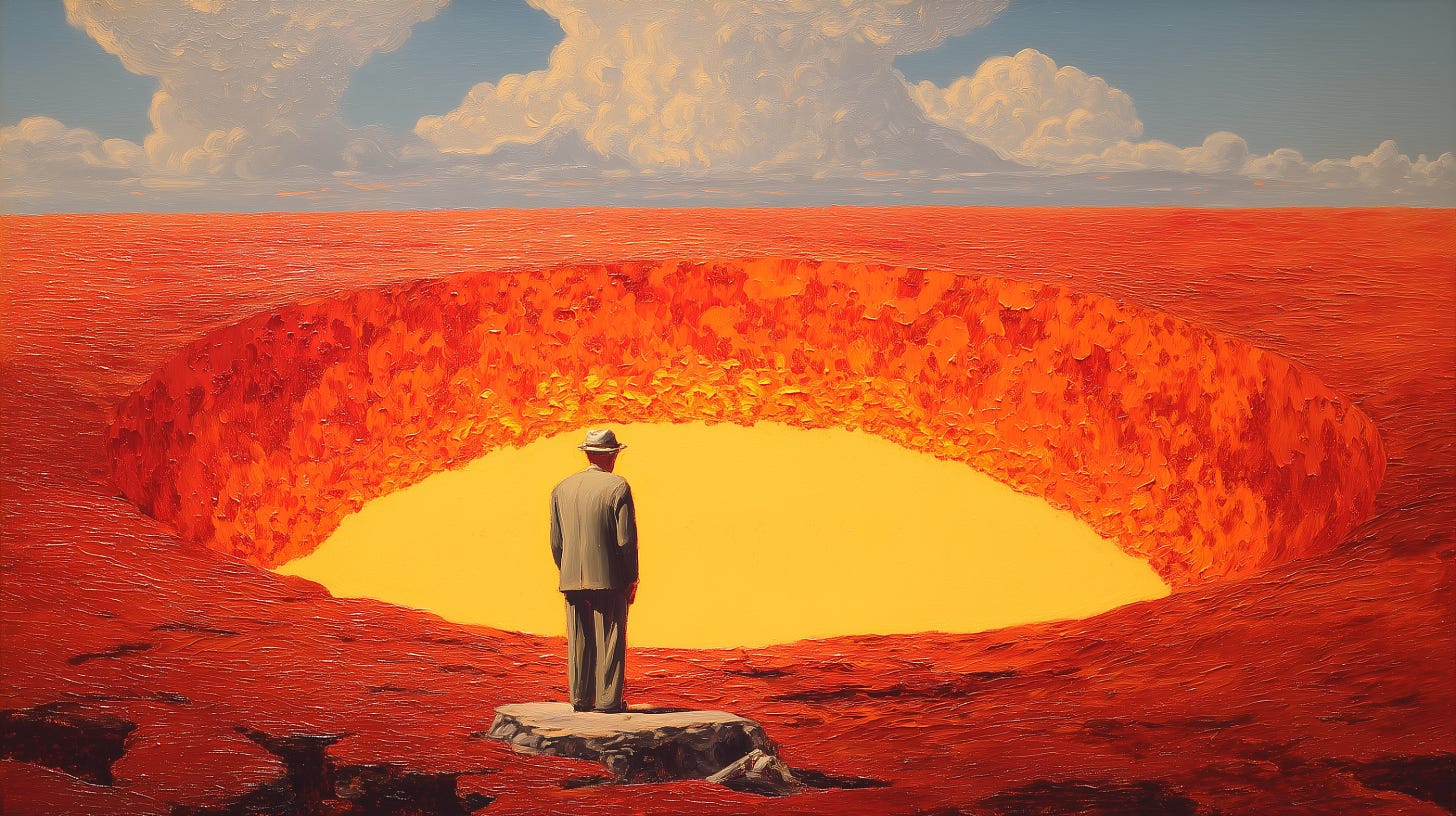A place worse than hell
There’s a unique kind of pain—quiet, persistent, and deeply personal—that stems not from failure, rejection, or heartbreak, but from the undeniable awareness of our unfulfilled potential. This awareness doesn’t shout. It whispers. It gnaws quietly, reminding us subtly yet incessantly that we could be more, do more, achieve more.
This is the silent torment of wasted potential.
Society often paints vivid pictures of success—glossy highlight reels featuring groundbreaking innovations, bestselling authors, prodigious entrepreneurs, and globe-trotting influencers. These images saturate our timelines and, consciously or unconsciously, set standards for achievement. However, beneath the surface, the true struggle isn’t against societal standards but against our inner awareness: knowing we are capable of greatness yet choosing comfort over courage, familiarity over exploration, safety over risk.
Goggins once said his biggest fear was dying and meeting the person he could’ve been — A fit, disciplined Navy SEAL and inspirational leader. And realising, “That’s not who I became.”
Consider the discomfort of waking up each day, realising that you’re living at a fraction of your capacity. Perhaps you’ve experienced moments of clarity—a passionate burst of creativity, a brilliant idea at 3 AM, a fleeting sensation of complete alignment. These glimpses hint at what life could feel like if you fully embraced your talents and ambitions. But then routine settles in. Days blur into weeks, weeks into months, and the realisation dawns that your potential remains untouched.
Why do we tolerate this silent torment? Often, it’s because the idea of potential feels boundless, vast, and daunting. To pursue it means facing uncertainty, the possibility of failure, and the vulnerability of being judged. Yet ironically, avoiding these challenges doesn’t shield us from pain; it deepens it. Knowing we could’ve been more and done more creates a specific kind of existential regret.
Author Steven Pressfield describes this internal battle vividly in his book, The War of Art: “Most of us have two lives. The life we live and the unlived life within us. Between the two stands Resistance.” This Resistance manifests as procrastination, self-doubt, perfectionism, and fear. It’s precisely this Resistance that keeps our potential locked away, untouched and unexpressed.
But there is hope embedded within this awareness. Recognizing your wasted potential is already a crucial step forward. It signals not defeat, but an awakening—a call to action. The moment you acknowledge your inner torment, you reclaim agency over your narrative. You accept responsibility for bridging the gap between your current self and the self you aspire to be.
To overcome this silent torment, you don’t need grand gestures or dramatic shifts overnight. Instead, start small, yet decisively. Embrace imperfection. Allow yourself to fail. Pursue curiosity, not perfection. Make peace with discomfort. Each step forward, however tiny, diminishes the weight of regret and replaces it with the satisfaction of genuine effort.
Ultimately, the greatest tragedy isn’t failure or criticism. It’s the quiet tragedy of never trying—of living a life beneath your true capabilities, haunted by the question: “Who could I have been?” To avoid this deeper hell, you must choose courage over comfort, action over hesitation, and growth over stagnation.
Your potential isn’t merely a personal resource—it’s your unique gift to the world. Unleash it. Pursue it relentlessly. After all, a life fully explored, expressed, and realised isn’t free from struggle, but it is undoubtedly free from the quiet, unending torment of wasted potential.
-aniket


This keeps me awake at night. Thank you forever for your posts. They (The one on love not waiting, and on building great products and working without gimmicks - authentic giving) are exactly what's been running through my head for the past 2 years. It gets me up in the morning and the last thing I think about before bed.
Hell is real. But we can crawl out.
God bless you.
Thanks Aniket for this post. I had been listening to some podcast about Learned Helplessness this morning which can be a root cause of feeling stuck and numb somewhere. It is imperative to break the feelings down and go deeper. David Goggins is a great example on exposing his vulnerabilities to the public and detailing his break out of the cycle journey. Can say my favorite as of now.